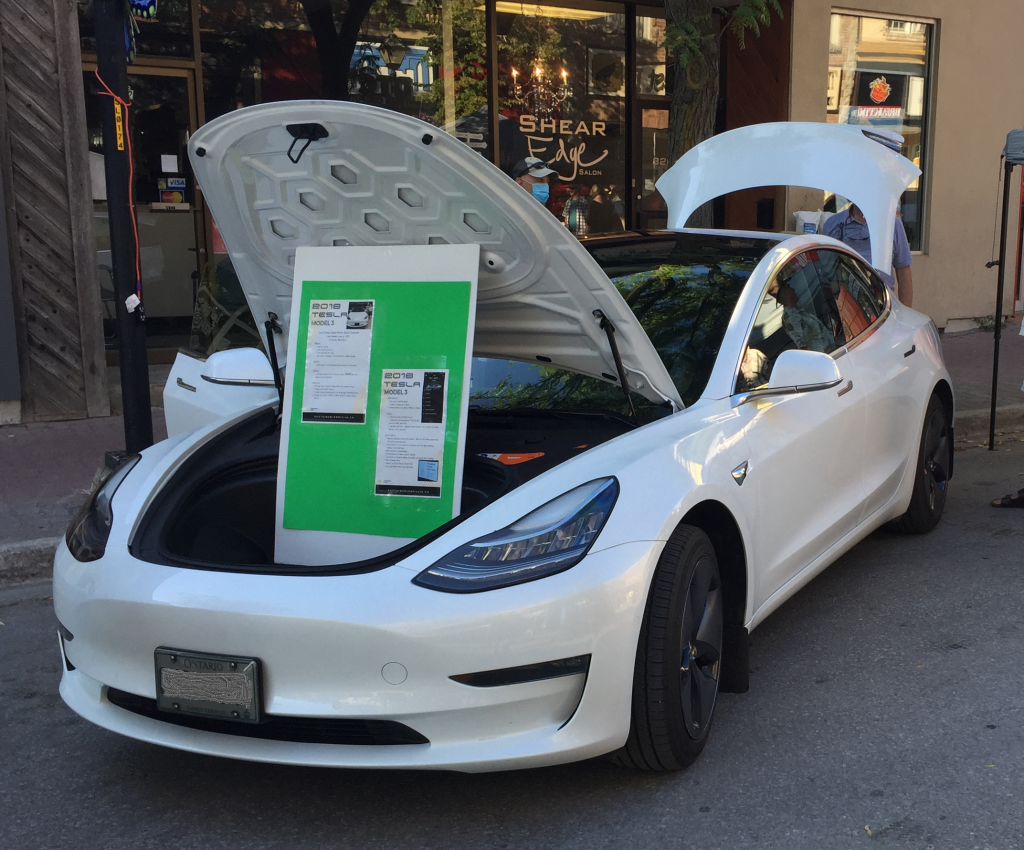Cost Comparisons
Protecting our planet for generations to come.
According to Natural Resources Canada (NRCan), it’s worth putting some time into researching your choice. Fuel consumption can range from less than 2.0 gasoline litres equivalent per 100 km (Le/100 km) for a Battery-Electric Vehicle to more than 20.0 litres per 100 km (L/100 km) for a large SUV. This can result in a considerable difference in operating costs. Driving 20,000 km a year can cost from less than $300 to more than $4,000 while carbon dioxide (CO2) emissions can range from 0 to more than 9 tonnes per year depending on the vehicle you choose to buy.
Battery-Electric Vehicles (BEV) use electric motors that draw electricity from on-board rechargeable batteries. They are the most fuel-efficient vehicles available, with an average combined consumption rating of 2.3 Le/100 km. BEVs produce no tailpipe emissions.

Costs and Benefits
Electric Drive Motors
Electric-drive motors are much more efficient than combustion engines and drive trains. The efficiency of energy conversion from on-board storage to turning the wheels is nearly five times greater for electricity than gasoline, at approximately 76% and 16%, respectively.
Internal Combustion Engine
- Vehicles using fossil fuels are essentially heat engines that produce piston motion from the expanding hot gases produced from burning fuel. The main product is actually heat. Even the most efficient piston engines can only run at about 50% efficiency for turning heat into motion.
Regenerative Brakes
Regenerative braking Electric Vehicles also increase a vehicle’s efficiency by using regenerative braking technology to recover energy that would otherwise have been lost. Energy is fed back into the batteries as the brakes are applied.
Conventional Brakes
- Braking in a conventional ICE vehicle serves to slow the vehicle down by turning forward motion (kinetic energy) into heat through the friction of brake pads. This energy is lost and there is no recovery as the heat is radiated away.
Cost of Electricity
The cost of electricity per kilometre is much lower than that of gasoline: a BEV costs about 2 to 3 ¢/km (at 13 ¢/kWh), compared to a typical 4-cylinder gasoline vehicle at 7 to 8 ¢/km (at $1.00/L).
Cost of Fossil Fuels
- Gas prices remain volatile as dictated by world governments, demand and production issues. The true cost per litre is not represented at the gas pump while the industry is subsidized through non-tax and tax-based government subsidization programs.
Emissions from BEVs
- Carbon emissions – Most electricity in Canada comes from clean and renewable energy sources like hydro generation. Orillia Power produces electricity from 4 hydro dams. As the electrical grid becomes cleaner the total carbon emissions from Electric Vehicles continue to drop.
Adoption of BEVs can help Canada to meet greenhouse gas emission targets by reducing transportation emissions by as much as 95%.
Emissions from ICEs
- Carbon emissions – Continued use will contribute to climate change. While prices dip periodically to adjust to current supply and demand, the long-range prognosis is not good. Fossil fuels are non-renewable and once burned are gone forever and require more extreme methods to extract from remaining reserves.
- Continued use will produce emissions that are inconsistent with international commitments and detrimental to health.
Fuel Consumption Tool
Try this useful tool from NRCanada to compare fuel consumption of electric vehicles with conventional vehicles to identify the most fuel-efficient vehicle that meets your everyday needs by comparing the fuel consumption information of different models.
To help compare apples (electric) to oranges (gas) this tool uses:
- A conversion factor to convert electrical energy consumption values, expressed in kilowatt hours per 100 kilometres (kWh/100 km), into gasoline litres equivalent per 100 kilometres (Le/100 km).
- One litre of gasoline contains the energy equivalent to 8.9 kWh of electricity.
- Estimated annual fuel cost is based on the combined rating, a driving distance of 20,000 km and forecast prices of $1.25/L for regular gasoline, $1.40/L for premium gasoline, $1.20/L for diesel fuel and $0.13/kWh for electricity. Pricing for E85 is not provided.
- Tailpipe emissions of carbon dioxide (CO2) are shown in grams per kilometre for combined city and highway driving. For PHEVs, CO2 emissions values reflect a mix of electric mode and gasoline-only operation.
- For PHEVs, annual fuel cost values reflect a mix of electric mode and gasoline-only operation.
We gratefully acknowledge the generous financial contribution made by the Orillia Area Community Development Corp. (CDC).

And the generous financial support of the CIBC

And the continuing support for Sustainable Orillia by the City of Orillia


